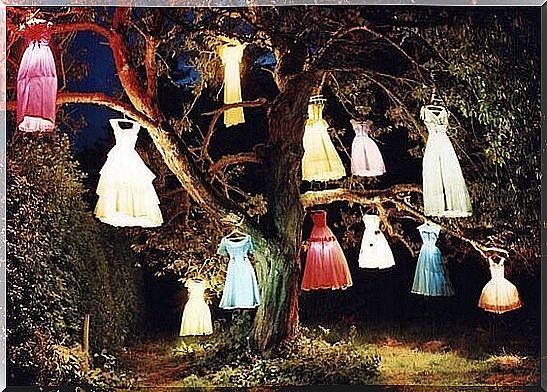3 Types Of Psychological Poison In The Home

A healthy home is one of the most important factors in making us psychologically strong. However, the opposite can also happen: a sick home makes us much more prone and vulnerable to diseases, in mind as well as body. Psychologically poisoned in the home comes in several different forms.
The word home does not just refer to the typical family with a mother, father, a couple of children and a dog. The home is a place we live and that we can share with siblings, friends, parents or even a pet and guests from time to time.
The quality of the bonds built in this home is the key to our emotional health. Where there is cohabitation, there is also conflict. But especially in the home, we should not open the door to behaviors that can turn into psychological poisoning.
We will list three of the toxic behaviors that we should never let in through the door, and definitely not allow ourselves to be made at home.
The bad thing about screaming is that it starts as something unusual, but then the tolerance increases and makes it a habit. Even more so if someone facilitates this development. Today you scream because of frustration that they do not understand what you are saying, and tomorrow you scream because someone understood you too well or because no one wants to listen (at least that’s what you think).
When you are screaming, which is more annoying than offensive, a poisonous seed begins to grow: the seed of violence. Screaming becomes a normal conflict in a psychologically harmful situation. It is an act that seeks to show power; a way of corrupting the true meaning of words.
Speaking softly can also become a habit, but a fantastic one. Not shouting and not letting others shout at you gives strength to your coexistence and helps you increase self-esteem, respect and self-control. “We do not shout here” should be a basic rule in every home.
A large part of healthy living together consists of knowing how to respect other people’s space. When we say “space”, we do not just mean physical places that belong to someone, but it starts with that.

There must be a total respect for other people’s belongings and for the places that are part of that person’s personal environment. In the same way, it is very important for each person to clearly mark these boundaries and make sure that everyone else knows them. There may even be some that you can and should negotiate: this is the right time to do it.
Everyone should have a personal space and be independent in it, where you can trust that no one else crosses the border. When we respect physical spaces, we will also learn to respect other people’s privacy.
No matter how much you coexist with others, everyone has their own life. We should not step into the psychological space of others unless they have invited us or given us permission. Or, objectively speaking, if the privacy in question involves someone else in some way. We all have the right to silence, secrets and convictions.
Every home requires a series of chores that are not very satisfying, but necessary. The home uses a variety of mechanisms to function and be maintained. Electricity, water, appliances, etc. must work. We all need to clean and maintain our physical spaces and all their parts.

Cohabitation is much healthier when we agree on how we should handle the chores. Sometimes it is impossible to put together an equal organization of these activities, but it is a task that must be done. And that is exactly what consensus is for: to divide the chores fairly.
Even more important, however, is that you actually perform the chores. It is vital that every member of the household has a responsibility when it comes to this. It is a state that promotes solidarity, cooperation and respect. It makes everyone’s lives easier and gives everyone a sense of worth. It also reinforces the idea that there are tasks to perform in all collectives, for our own and others’ sake.
Some people sometimes compare a home to a temple, and not without reason. If we honor it, it will be a source of inspiration that projects into all the other social spaces we take part in. If we neglect or damage it, it can become the first link in a long chain of personal disasters.









